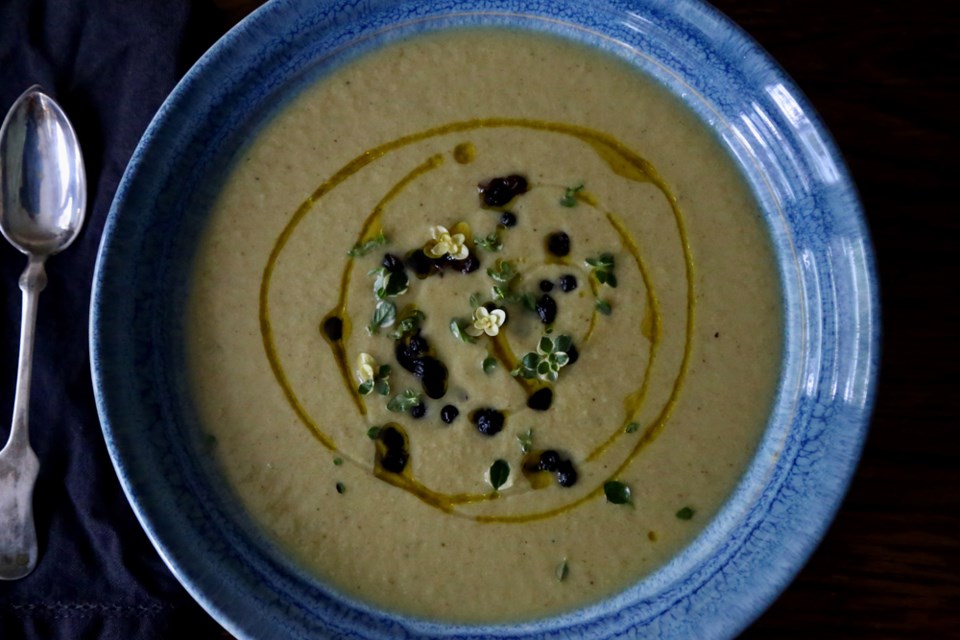I can’t take credit for the declaration, but I subscribe to it. Nutritionist Heather Morgan is credited with having said, “Every time you eat or drink, you are either feeding disease or fighting it.”
Since I was a dozen years old, I have been preoccupied with food as medicine, culinary anthropology, and the fresh food-enhanced mind-body relationship – a relationship that transcends and links us to the natural world. It isn’t surprising, I suppose, that I took a post-corporate-career "hard left" into permaculture and holistic nutrition.
Our three children grew up believing two fundamentals – the first is that sleep is delicious, and the second is that you are what you eat. To this day they sleep deeply and deliciously, and they eat heartily and healthily. They are rich in all that truly matters; well on their way to figuring out who they are and where they will find sustainable happiness.
There is a running joke in my husband’s family, about blueberries. I used to feed the children Swedish Muesli most days for breakfast, with honey and fresh blueberries, and whatever other fresh berries I could find and afford. Occasionally, days started with blueberry smoothies, or blueberry sauce on whole wheat pancakes. Blueberries are a so-called super food, plus they are portable, freezable, fun, and easy to add to everything from salads, to soups, even sandwich wraps. My mother-in-law Maria questioned my blueberry preoccupation, but honoured it nonetheless.
Since then, every time our children achieved the smallest greatness – good marks on a spelling test, a sports day ribbon, or most recently, a post-secondary or professional victory – Maria credited their success to the blueberries.
“Thank your parents for those magical blueberries,” she’d laugh.
She isn’t wrong; what we eat does matter absolutely. In addition to the values that define how we live and love, we are indeed made up of the "stuff" that we eat. We are made of natural elements that require constant feeding of unprocessed natural elements to "thrive." Thrive, not survive.
Survive is what so many of us do, day in and day out, too busy to take the time we deserve to love and feed our bodies and our minds. I know this to be true because I have very often been too busy to feed my body and mind as it deserves to be fed, or to get enough rest.
It took me five decades to fully embrace that making time to learn about the goodness of fresh food, and prepare it with intention, is quite possibly the single most important thing (the second being sleep, in my humble opinion) you can do for yourself, and for your family’s physical health. Tidal waves of research support the notion.
A few fast and healthy practices that have saved me on many occasions involved layering kid-friendly food groups in fun and delicious ways – peanut (or nut) butter, banana, honey, and raisin sandwiches were a favourite, as were cheese, pear, and nut butter.
I felt no shame in disguising or re-naming unfamiliar ingredients, but only until there was consensus as to their deliciousness.
Steaming, then pureeing all manner of vegetables to hide in a yummy lasagna, creamy soup, or marinara sauce satisfied everyone and speed-passed vital micro-nutrients into tiny bodies. Cooking rice in nutrient rich low-sodium chicken, vegetable, or mushroom broth instead of water is an easy habit to adopt, paying healthful dividends over time. Swapping white arborio rice for black rice for risotto is easy, elegant, and provides a healthy dose of antioxidants. Repeating just a few best kitchen practices over time, I believe, gives us a fighting chance to offset the stresses of daily life with improved nutrition.
Growing our own vegetables, fruits and herbs teaches us to combine what is in season, in creative new ways, and demonstrates the mind-body-garden connection to our children. This week we made roasted leek, potato and arugula soup with humble produce we grew at home in our front-yard garden. The arugula was a non-traditional add-on based on garden surplus, but it made the beautifully simple, highly nutritious 19th-century classic dish even better, providing a nutrient-dense source of calcium, fibre and phytochemicals.
Fighting words, if ever I heard them.
Laura Marie Neubert is a West Vancouver-based urban permaculture designer. Follow her on Instagram @upfrontandbeautiful, learn more about permaculture by visiting her Upfront & Beautiful website or email your questions to her here.
For a taste of permaculture, click on the YouTube link below:
(Video - Courtesy of West Vancouver Memorial Library)




